- Home
- JoAnn Ross
Long Road Home Page 8
Long Road Home Read online
Page 8
“You’re sure as hell not alone there,” he said.
As they drove down Front Street, Austin thought, again, how much she couldn’t imagine living anywhere else. While with a population a bit under four thousand, River’s Bend might not have all the amenities of a city like Portland or even Eugene, she loved its quaint western charm.
Seeking tourism dollars, an earlier town council, long before she’d been born, had come up with the idea of billing itself as “Oregon’s Most Western Town—where spurs have a job to do and cowboy hats aren’t a fashion accessory.” The ploy had worked. While ranching remained the top industry, tourism was coming close, thanks to the outdoor lifestyle, growing proliferation of dude ranches, and the number of western movies that had been filmed there.
Gene Autry, John Wayne, and Clint Eastwood had all ridden horseback down Front Street. So had Doc Holliday, Wyatt Earp, along with both Butch Cassidy and the Sundance Kid. But other than Butch and Sundance, the make-believe cowboys had bigger displays in the local historical museum.
One of the pluses of being a go-to location for western films was that typically crews would return the storefronts to an even better condition than they’d found them, which had proven a good deal for local merchants over the years. An admitted downside was the fact that more and more movie people were offering top dollar for a piece of paradise to escape to.
The trees along Front Street had greened up, and perky-faced purple-and-yellow pansies tumbled over the flower boxes below the store windows.
“Harry and Hank are still playing checkers,” he murmured as they passed Harry’s Barber Shop, where the barber and hardware owner were seated outside on a wooden bench with the board between them.
“Some things never change. They’ve been doing that nearly every day for as long as I can remember.”
In the winters, when she’d go to town with her dad, she’d see them through the window, playing next to the woodstove that Harry had once used for heat. After an errant spark had nearly burned down the shop—and risked setting the entire block of wooden buildings on fire, he’d given in to the county fire marshal and switched to electric.
While many things stayed the same, the New Chance, which had been gutted by a fire last fall, was nothing like the tumbling-down restaurant Rachel Hathaway had bought, sight unseen, while living back east with her young son.
“The steer’s gone,” Sawyer said as he pulled into the parking lot. The fiberglass steer on the roof of the New Chance Café had, for many years, been a River’s Bend landmark.
“It was one of the first things to go. But Rachel saved it and put it in the backyard of their rental house. Then they took it to your brother’s when they moved in with him. Cooper’s been using it to teach Scott to rope.”
“Never too young to learn.”
Which was true enough. But the missing steer was just yet more proof that the planet hadn’t stopped spinning during all those years he’d been away.
10
“IT DOESN’T LOOK like the same place,” he said as they walked in the door. The entry had been widened, and although Sawyer wasn’t a gardener, he figured the skylight must provide sun for whatever kind of potted pine tree sat next to the hostess stand.
“In a way, the fire proved a blessing in disguise. Since the place was left a gut job, Rachel was able to design her dream restaurant.”
“She definitely pulled it off.” Cooper had shared the story of how the entire town had pitched in, not only to ensure residents would continue to have a restaurant but to help a young widow and her son settle into the community.
“Hey, Austin.” Janine Walker, who was behind the hostess stand, greeted them with the megawatt smile she used to flash to folks in the bleachers during her cheerleader days. “It’s good to have you back home, Sawyer.”
“It’s good to be back,” he said for the ten-gazillionth time over the past week.
“Heather and Tom are already here. They reserved a booth so you guys can have some privacy.”
The smile turned a bit sly, Sawyer thought. As if she knew about Heather’s matchmaking scheme. Then again, maybe she was just remembering that July summer night they’d shared a kiss atop the Ferris wheel at the county fair when they were both trying to make someone else jealous.
Which had worked for her when Dave Ellingson had come crawling back to her after a fling with a fellow counselor while at the Presbyterian church camp at Crescent Lake. Meanwhile, if Austin had even noticed him dating Janine for that two-week period, apparently it hadn’t bothered her, because she’d never said a word.
For as long as he could remember, the New Chance had been a westernized version of any small town’s greasy spoon. It had been dark and dingy, and the menu, while not actually offering up a side of ptomaine as locals had long joked, had done nothing to stimulate any appetites.
Rachel had opened up what he remembered to be a smoke-stained popcorn ceiling to the high rafters, which highlighted antique embossed copper tiles. The old log walls, which had undoubtedly been embedded with decades of nicotine going back to when smoking was allowed, had been covered with sheetrock and painted a warm gold that enhanced framed paintings celebrating the town’s western heritage.
Heads swiveled toward them as they wound their way past the hand-carved bar from an 1800s Gold Rush brothel Sawyer knew Mitzi had unearthed in a Jacksonville antique shop.
“I think we’re now number one on the gossip hit parade,” Austin murmured as they passed the open kitchen, where meats grilled on open flames and stews bubbled away on the stove.
“They’re looking at you.” Who wouldn’t? The pertinent question was what the hell was wrong with the men of River’s Bend that they’d let Austin Merrill get away all these years?
She shook her head. “You’d think I’d never worn a skirt before.”
“I like it.” He refrained from saying that he’d never seen her wear a skirt like that before. The clunk of his heels against the original tongue-and-groove wood floor Rachel had uncovered beneath the peeling old avocado-green linoleum was a familiar, distinctive sound that combat boots had never replaced. Like the rushing Black Bear River and the soft lowing of cattle at sundown, that clunk was another welcome sound of home.
“You’re here!” Heather jumped up from a back booth snuggled next to a beehive fireplace. She tackle-hugged Austin, then Sawyer. “What fun to have the gang back together again!”
After hugging her back, Sawyer shared a half guy hug with Tom. “Good luck,” his friend murmured as the women leaned back, checked one another out, and complimented each other on their outfits.
Which, in Austin’s case, had been a major surprise. Sawyer had known she was leggy from the way she’d started to spout like a weed back in fourth grade. And later, all those years swimming in the natural hole at the river’s bend that had given the town its name had caused his adolescent hormone-driven body all kinds of misery. But he’d forgotten that those strong, slender legs went all the way up to her neck. And he’d never, that he could remember, seen them in a skirt that short.
When his pheromone-hammered brain had imagined unbuttoning those flat metal jean buttons down the front of the skirt, he’d slammed the vision shut, afraid Buck, still being a guy himself despite his health problems, might be able to read his mind.
From the way her father’s wiry gray brows had dived toward a nose that had been broken on more than one occasion during his rodeoing days, Sawyer knew he’d been busted.
“I hope you haven’t been waiting long,” Austin said as she slid into the booth. The skirt scooted up a bit, causing a lightning bolt of heat to shoot below Sawyer’s belt.
“We just got here,” Heather assured her.
“What’ll you have?” Tom asked as a waitress in black jeans and a starched white shirt arrived with her pencil and pad ready.
Sawyer glanced over at Austin, realizing that he had no idea what she liked. It was odd how, in some ways, being with her felt like just yesterday, w
hile a Grand Canyon-size chasm had opened between those days and now.
“I’ll have a margarita, please,” she said, smiling up at the waitress, whom he belatedly recognized as having gone steady with Ryan during most of his brother’s sophomore year of high school. “Frozen. With salt.”
“A Bud Light for me.” Despite what he’d been told about Rachel’s home-style cooking, given her background catering to the East Coast’s one percent, Sawyer wondered if she carried anything but pricey artisan craft brew.
The waitress didn’t bat an eye. “A frozen margarita with salt and every cowboy’s label of choice,” she said, sounding resigned as she wrote the order down. The beer, like the boot clunk, was a basic part of life. Just like you wouldn’t catch a cowboy wearing designer jeans or pimping up a pickup.
“Thanks, Laci,” he said, after they’d all agreed to order what Heather assured him was the café’s signature spinach and artichoke dip with grilled flatbread and tri-color tortilla chip appetizer.
She’d just slipped the pad into the pocket of her short black apron and looked up, seeming surprised. “You remembered me.”
“Sure. I always thought you were too good for Ry,” he said as more memories had filtered through the fog of years. There’d been a time when the two teenage lovebirds had looked as if they might actually be getting serious. Which might have been too young, but not unusual in small towns, where everyone knew everyone and people tended to pair up early.
Then their mother had died of ovarian cancer, and Ryan, who’d always planned to be the first astronaut from Oregon, had changed direction, instead focusing every atom of his attention toward becoming a doctor.
“I’m not sure about that. I always knew that I wanted to get married and have kids, while Ryan had other, bigger plans. Especially after . . .”
Her voice drifted off, as she realized that the topic of their mother dying wasn’t a topic conducive for a fun evening.
“He’s always been single focused,” Sawyer agreed, wanting to help her out.
“Which worked out well. For both of us. He became a doctor like he was determined to do, and I settled down and had three kids with Garrett Henley. Who, by the way, brews that cold-filtered, no preservatives or additives, made with four different kinds of malt Rogue Rodeo Red Ale you didn’t order.”
“Well, hell,” Sawyer said, flashing her a grin that pulled at the muscles in his face and felt decidedly rusty. “Why don’t you change my order and I’ll give it a shot.”
She tossed a grin right back at him. “You won’t be sorry.”
Although the café was nearly filled, she was back in a couple minutes with a margarita the size of a swimming pool and a stubby brown bottle with a bucking bronc on the label. Because he knew Ryan’s old flame was waiting, Sawyer tipped the bottle back and swallowed.
“This is good stuff.” It was. Robust, complex, but satisfying.
“Of course it is. That’s why Rachel stocks it. She also likes that it’s natural, which makes it good for you. In moderation.”
He took another taste. “You and Garrett had better get ready for your simple life to amp up,” he said. “Because this brew could take off.”
“From your lips. We’ve got kids to send to college down the road.” She laid down four tan menus with dark brown script, which were a long way from the yellowed, laminated, food-stained plastic Johnny Mott had used forever. “Take your time. The booth’s booked for you guys as long as you want it tonight.”
“Small towns,” Tom said as they watched her walk over to a table across the room.
“My favorite kind,” Heather said. “I enjoyed living in Corvallis when we were in school, but although it’s a nice college town, and Portland was fun to visit, it never felt like home.
“So.” She blew out a breath. “Because this is a special occasion and it’s been so long since we’ve all been together, I brought a memory book to share.”
She pulled out a small blue photo album embellished with the family name and dates on the front in a calligraphy Austin remembered her teaching herself back in middle school. She’d always been the creative one of the two of them. Give Heather Campbell a glue gun, tape, and some cardboard and the woman could probably build a house. “Of course you both remember this day.”
“Best day of my life,” Tom said.
She dimpled prettily. “And isn’t that exactly what you’re supposed to say?”
“We look so young,” Austin murmured, looking down at the wedding photo. So filled with hopes and dreams of happily-ever-afters. Which Heather and Tom had managed to achieve, despite marrying right after their freshman year of college.
She was standing next to Heather, holding a smaller version of the bride’s pastel bouquet created from hydrangeas, roses, and peonies. Although the flowers had come from Tom’s mother’s garden, they’d managed to talk Heather into allowing Lily Sullivan, who owned Blossoms, the local florist shop, to arrange the bouquets. As Mrs. Campbell had wisely pointed out, even Wonder Woman had her limits.
Lexi O’Halloran, the other bridesmaid, who’d arrived for the wedding from Nevada with blue hair and a pink toolbox filled with mysterious pots, tubes, and brushes, had pulled Austin’s hair into a tidy figure-eight knot at the back of her neck. She’d also insisted on painting all their faces, which had made Austin nervous, given that Lexi had spent the past two years glamorizing showgirls in Vegas. Yet, somehow, although the hair stylist/makeup artist had put enough gunk on to spackle a barn, she’d magically made Austin look just like a better, sexier, almost hot version of herself.
Sawyer, wearing a white rosebud in the lapel of the dark suit he’d bought for high school graduation, was standing in the best man spot beside a beaming Tom, who looked like a kid who’d just had Christmas arrive six months early. Standing next to Sawyer was Brody Ames, another lifelong friend.
“We were mere babies,” Heather agreed. “I was a baby having a baby.” She reached over and laced her fingers with her husband’s. “But I wouldn’t change a thing.”
“Me, neither.”
Tom lifted their joined hands to his lips in a moment so intimate Austin looked away, only to have her gaze clash with Sawyer’s. His eyes were shuttered, revealing nothing, while she feared that everything she’d ever felt for him, was still feeling, was flashing for everyone in the New Chance to see.
“And, not that I’m tooting my own horn or anything,” Heather said with a laugh, breaking the suspended moment, “but after two kids and a dozen years, I can still fit in the dress.”
“You were, and still are, gorgeous,” Austin said. “And I’ll be eternally grateful that you didn’t make me dress like Annie Oakley.”
Instead of going for western wedding attire, which tended to be popular in ranching country, Heather had worn a floaty, snowy cloud of tulle over an eight-month baby bump. She had, unsurprisingly, made the dress herself, and somehow, despite a rapidly approaching due date, she’d even managed to bead the bodice during finals week. She was wearing the simple pearl necklace and earrings that her mother had worn at her wedding.
The blue bridesmaids’ sleeveless sheaths they’d found on a day trip across the mountains to Shirley’s Bridal was simple and classic and, atypical for many bride’s attendant dresses Austin had since worn, suitable for wearing after the wedding.
“Since I only expect to get married once, I decided I deserved something princessy,” Heather said. “Like you and I always dreamed of wearing when we’d play wedding.” Belatedly realizing how that lighthearted comment might sound, given Austin’s quickie marriage and divorce, she winced. “I’m sorry.”
“Don’t worry about it,” Austin assured her. “I was thrilled you wore your princess dress. Especially since you guys definitely set the standard for fairy-tale happily-ever-afters.”
“It hasn’t exactly been all a bed of roses.” As if wanting to get beyond the delicate subject of weddings, Heather literally turned the page to another day three months later, in fron
t of the altar at Our Lady of the River. “And here you both are again. At Sophie’s baptism.”
Austin was back in the blue dress, Sawyer in his suit. Sophie was wearing a long white baptismal gown that had been passed down through Heather’s family from her great-grandmother. Austin remembered the lace being so frail they were afraid if the baby had decided to start kicking too hard, the dress would shred.
“That little girl had a set of lungs on her, that’s for sure,” Sawyer said, reminding them of the baby girl’s ear-splitting objection to having water poured over her head.
“It’s ironic,” Tom mused. “Sophie screeched like a banshee when she was born. But Jack was as peaceful as a baby lamb.”
“And look how that’s turned around,” Heather said. “Sophie is my little helper, and her brother’s a perpetual motion dynamo from the moment his feet hit the floor in the morning until he crashes into bed at night.” She grinned over at her husband. “Your mom always says Sophie was a screamer because she could sense our fear.”
“There was sure enough to sense back then,” Tom agreed. “From the moment we put her in the car outside the hospital, I was scared spitless.”
“You stayed that way almost until her first birthday,” Heather recalled. “It took a week before he didn’t go pale as paper just holding her,” she told the others.
Austin laughed, even as she vaguely recalled those first days when Heather had always been the one to hold their daughter. “That’s hard to imagine.” This was, after all, a man accustomed to treating animals that could roll over and crush him while he knelt on a bed of straw turning a breech calf around.
“It’s true,” he said. “I finally got comfortable. But now that she’s turning into a young woman way too fast, I’m starting to worry all over again.”
“Because, having been a teenage boy yourself, you know exactly what to worry about,” Heather said.
They all shared a laugh as a dark flush rose on the back of Tom’s neck, confirming the comment.
“And here’s when your dad stood proxy for you for Jack’s baptism,” Heather said to Sawyer as she turned another page.

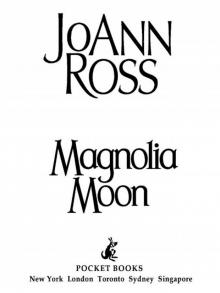 Magnolia Moon
Magnolia Moon Summer on Mirror Lake
Summer on Mirror Lake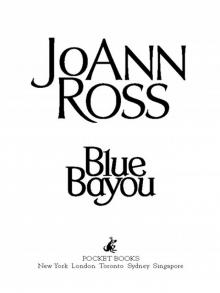 Blue Bayou
Blue Bayou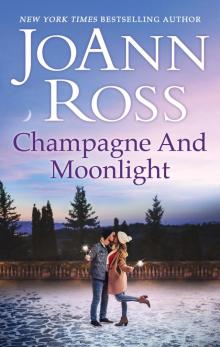 Champagne and Moonlight
Champagne and Moonlight No Regrets
No Regrets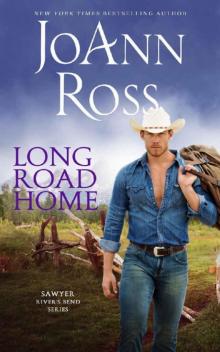 Long Road Home
Long Road Home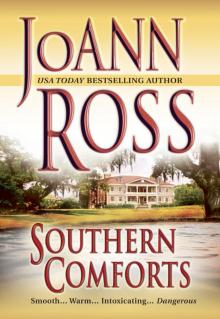 Southern Comforts
Southern Comforts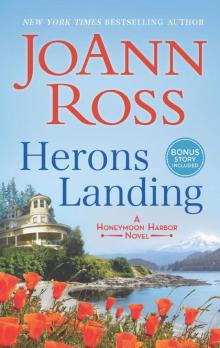 Herons Landing
Herons Landing Untamed
Untamed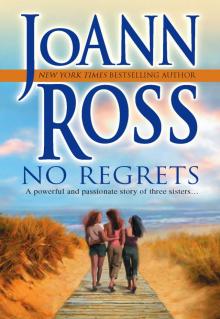 No Regrets (Mira Romance)
No Regrets (Mira Romance)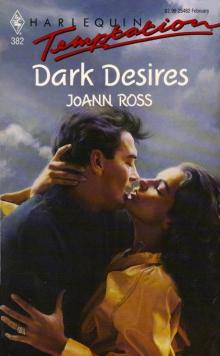 Dark Desires
Dark Desires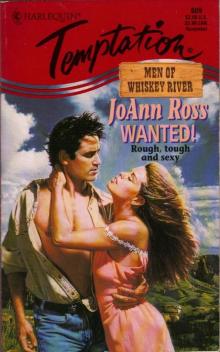 Wanted!
Wanted!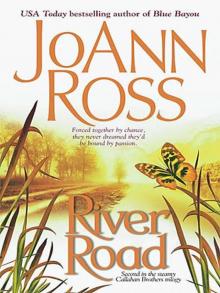 River Road
River Road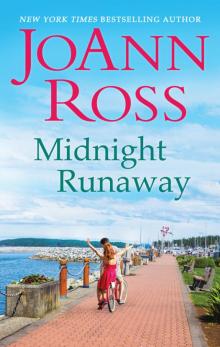 Midnight Runaway
Midnight Runaway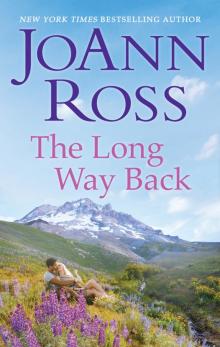 The Long Way Back
The Long Way Back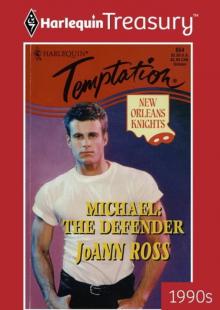 Michael: The Defender
Michael: The Defender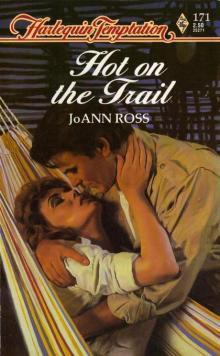 Hot on the Trail
Hot on the Trail When I'm With You
When I'm With You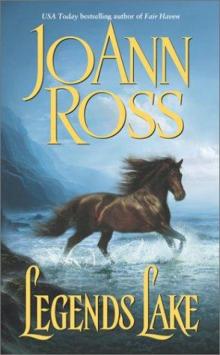 Legends Lake
Legends Lake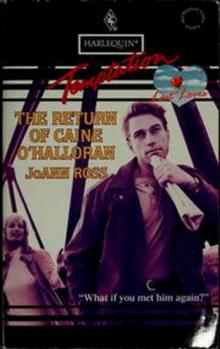 The Return of Caine O'Halloran
The Return of Caine O'Halloran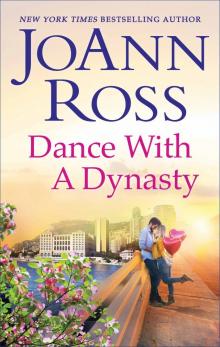 Dance with a Dynasty
Dance with a Dynasty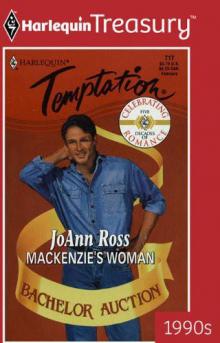 MacKenzie's Woman
MacKenzie's Woman Impulse
Impulse Sunset Point: A Shelter Bay Novel
Sunset Point: A Shelter Bay Novel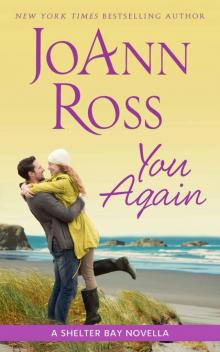 You Again: A Shelter Bay novella (Shelter Bay series Book 8)
You Again: A Shelter Bay novella (Shelter Bay series Book 8)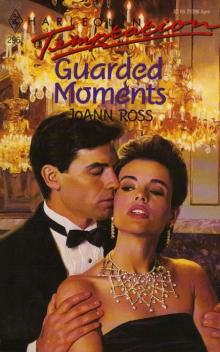 Guarded Moments
Guarded Moments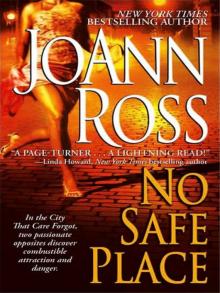 No Safe Place
No Safe Place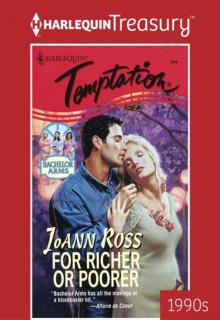 For Richer or Poorer
For Richer or Poorer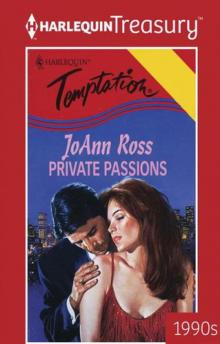 Private Passions
Private Passions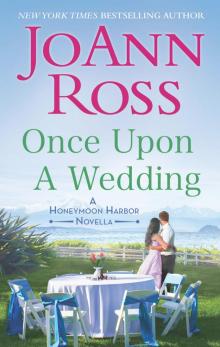 Once Upon a Wedding
Once Upon a Wedding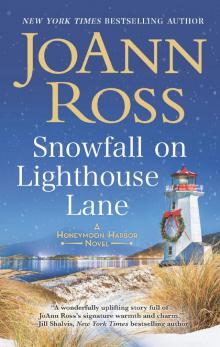 Snowfall on Lighthouse Lane
Snowfall on Lighthouse Lane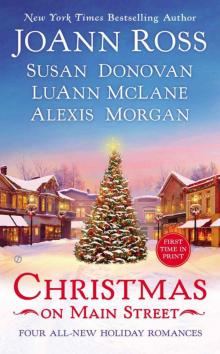 Christmas on Main Street
Christmas on Main Street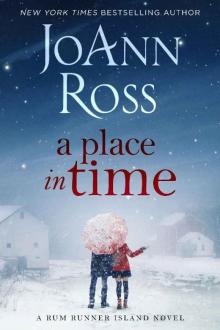 A Place in Time (Rum Runner Island Book 1)
A Place in Time (Rum Runner Island Book 1)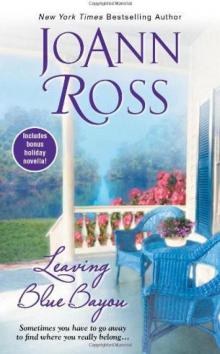 Leaving Blue Bayou
Leaving Blue Bayou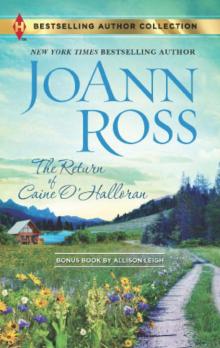 The Return of Caine O'Halloran: Hard Choices
The Return of Caine O'Halloran: Hard Choices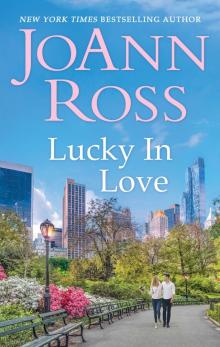 Lucky in Love
Lucky in Love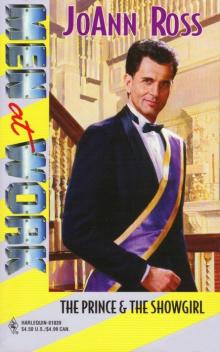 The Prince & The Showgirl
The Prince & The Showgirl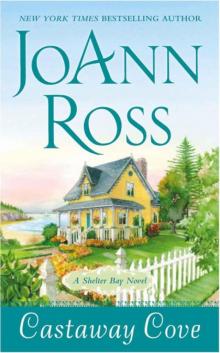 Castaway Cove
Castaway Cove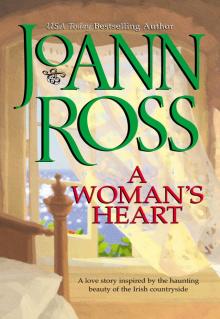 A Woman's Heart
A Woman's Heart One Summer
One Summer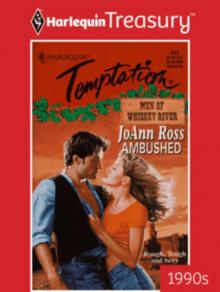 Ambushed
Ambushed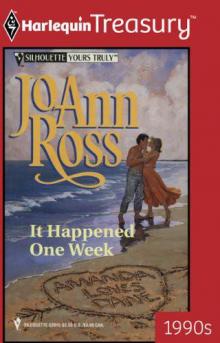 It Happened One Week
It Happened One Week Home by the Sea
Home by the Sea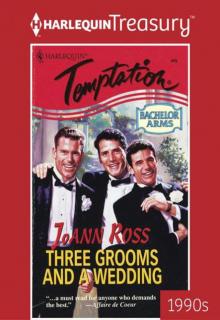 Three Grooms and a Wedding
Three Grooms and a Wedding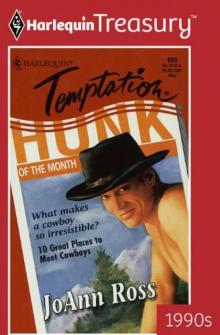 Hunk of the Month
Hunk of the Month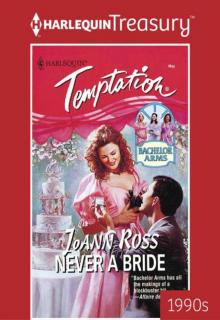 Never a Bride
Never a Bride Sun Kissed
Sun Kissed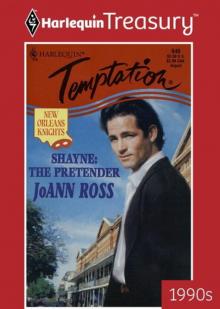 Shayne: The Pretender
Shayne: The Pretender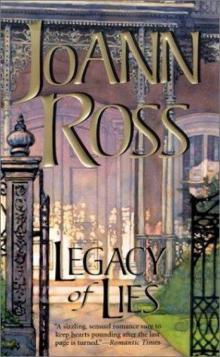 Legacy of Lies
Legacy of Lies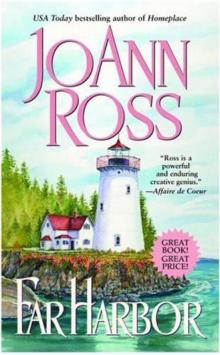 Far Harbor
Far Harbor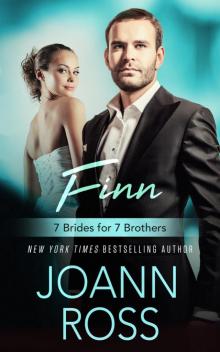 Finn
Finn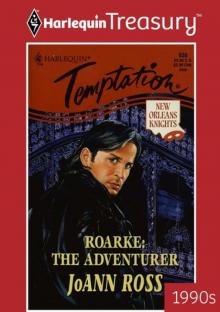 Roarke: The Adventurer
Roarke: The Adventurer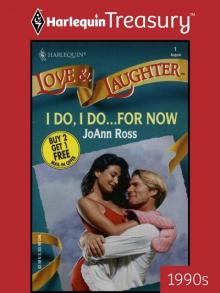 I Do, I Do...For Now (Harlequin Love and Laugher)
I Do, I Do...For Now (Harlequin Love and Laugher) Briarwood Cottage
Briarwood Cottage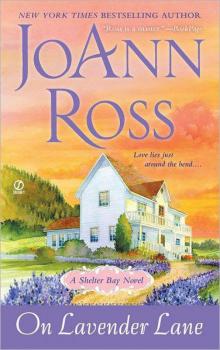 On Lavender Lane
On Lavender Lane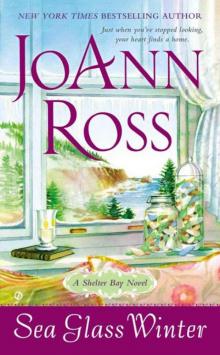 Sea Glass Winter
Sea Glass Winter River's Bend
River's Bend Christmas in Shelter Bay
Christmas in Shelter Bay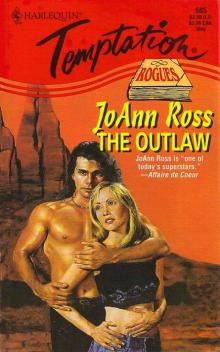 The Outlaw
The Outlaw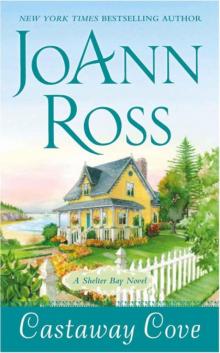 Castaway Cove (2013)
Castaway Cove (2013)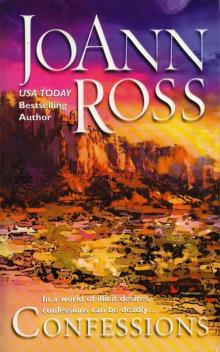 Confessions
Confessions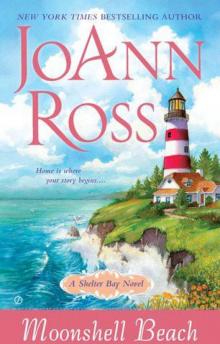 Moonshell Beach: A Shelter Bay Novel
Moonshell Beach: A Shelter Bay Novel